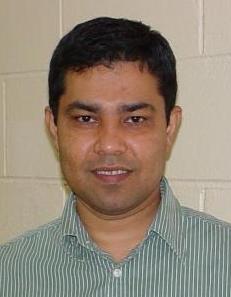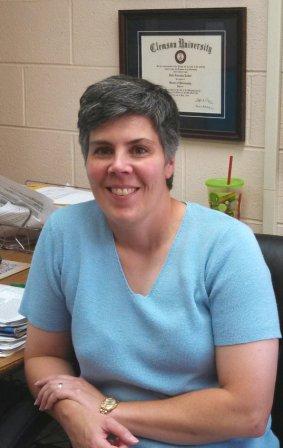Bachelor of Science with a Dual Degree in Physics and Engineering
This is a “3+2,” or Dual Degree, program that allows a student in approximately 5 academic years to obtain both a Bachelor of Science degree in Physics from the University of West Georgia and an engineering degree from Kennesaw State University. After completing the academic requirements of the two participating institutions, the student shall be awarded two bachelor’s degrees from the University of West Georgia and Kennesaw State University.
For more information, please see the Academic Catalog. A program map, which provides a guide for students to plan their course of study, is available for download in the Courses tab below.
Dual degree Physics/Engineering.
Career Opportunities
Link to Additional Career Information:
https://www.buzzfile.com/Major/Engineering-Physics
External Resource
Program Location
Carrollton Campus
Method of Delivery
Face to Face
Accreditation
The University of West Georgia is accredited by The Southern Association of Colleges and Schools Commission on Colleges (SACSCOC).
Credit and transfer
Total semester hours required: 120
This program may be earned entirely face-to-face. However, depending on the courses chosen, a student may choose to take some partially or fully online courses.
Save money
UWG is often ranked as one of the most affordable accredited universities of its kind, regardless of the method of delivery chosen.
Details
- Total tuition costs and fees may vary, depending on the instructional method of the courses in which the student chooses to enroll.
- The more courses a student takes in a single term, the more they will typically save in fees and total cost.
- Face-to-face or partially online courses are charged at the general tuition rate and all mandatory campus fees, based on the student's residency (non-residents are charged at a higher rate).
- Fully or entirely online course tuition rates and fees my vary depending on the program. Students enrolled in exclusively online courses do not pay non-Resident rates.
- Together this means that GA residents pay about the same if they take all face-to-face or partially online courses as they do if they take only fully online courses exclusively; while non-residents save money by taking fully online courses.
- One word of caution: If a student takes a combination of face-to-face and online courses in a single term, he/she will pay both all mandatory campus fees and the higher eTuition rate.
- For cost information, as well as payment deadlines, see the Student Accounts and Billing Services website
There are a variety of financial assistance options for students, including scholarships and work study programs. Visit the Office of Financial Aid's website for more information.
Coursework
**Students must graduate from UWG the same semester that they graduate from their engineering program.
Downloads
General
This course is designed to prepare students for calculus, physics, and related technical subjects. Topics include an intensive study of algebraic and transcendental functions accompanied by analytic geometry and trigonometry.Students cannot receive credit for MATH 1112 and MATH 1113.
The first of a three-course sequence in calculus. Limits, applications of derivatives to problems in geometry and the sciences (physical and behavioral). Problems which lead to anti-derivatives.
A continuation of MATH 1634. The definite integral and applications, calculus of transcendental functions, standard techniques of integration, sequences and series.
An introductory course that will include material from mechanics, thermodynamics, and waves. Elementary calculus will be used.
The lab component for PHYS 2211 which must be a co-requisite.
An introductory course that will include material from electromagnetism, optics, and modern physics. Elementary calculus will be used.
The lab component for PHYS 2212 which must be a co-requisite.
Major Required
FL (6 hours) or six hours selected from:
PHYS 4513. 4523, MATH 3063, 3003, 3353, 4203, 4313, 4363. or 4513
Nine hours selected from:
PHYS 3013, 3023, 3413, 3511, 3521, 4323, 4333, 4413, 4513, 4523, 4683, 4984, 4103
X number of hours at the engineering school.
(Must include enough upper-level to make a total of 39).
Electives
(Any hours less than 30 in X should be accounted for here)
Modeling with and solutions of ordinary differential equations, including operators, Laplace transforms, and series; systems of ODE's, and numerical approximations.
Principles of Newtonian mechanics, mathematical techniques, conservation laws, introduction to orbit theory, rigid body dynamics, and accelerated coordinate systems. (At the level of Davis.)
Thermodynamic laws and applications. (At the level of Black and Hartley).
Electrostatic fields and potentials, conductors, dielectrics, magnetic fields, magnetic materials, electromagnetic induction, and Maxwell's equations. (At the level of Griffiths.)
A study of the failure of classical mechanics to describe experiments like Black Body Radiation, the Photoelectic Effect, the Michelson-Morley experiment and others which led physics into the worlds of special relativity and wave mechanics. Topics in wave mechanics include the Bohr Theory and its extension into the Schrodinger Equation with applications.
Major Selects
FL (6 hours) or six hours selected from:
PHYS 4513. 4523, MATH 3063, 3003, 3353, 4203, 4313, 4363. or 4513
Nine hours selected from:
PHYS 3013, 3023, 3413, 3511, 3521, 4323, 4333, 4413, 4513, 4523, 4683, 4984
X number of hours at the engineering school.
(Must include enough upper-level to make a total of 39).
Electives
(Any hours less than 30 in X should be accounted for here)
A transition course to advanced mathematics. Topics include logic, set theory, properties of integers and mathematical induction, relations, and functions.
Solutions of PDE's using orthogonal function systems. Studies of classical boundary-value problems, including the heat equation, wave equation, and potential. Integral transform and numerical methods of solutions.
Advanced topics in the theory of ordinary differential equations. Topics include existence theory, linear systems, phase plane analysis, asymptotic behavior of solutions, stability of linear systems, Lyapounov's second method and applications.
Studies of classical boundary-value problems, including the heat equation, wave equation, and potential equation. Solution methods including characteristics, separation of variables, integral transforms, orthogonal functions, Green's functions, Fourier series.
The first course in a comprehensive, theoretically-oriented, two-course sequence in linear algebra. Topics include vector spaces, subspaces, linear transformations, determinants, and elementary canonical forms.
Electronic principles, basic circuits and components, theory and applications of powers supplies, amplifiers and oscillators. (At level of Simpson.)
Electronic applications of digital logic circuitry, flip-flops and registers, sequential logic circuitry and design. (At the level of Simpson.)
Reflection, transmission, and refraction of waves, electromagnetic theory applications and light properties. (At the level of Hecht.)
Selected experimental investigations in electrical measurement, atomic and nuclear physics, solid state physics, optics, and electronics.
Selected experimental investigations in electrical measurement, atomic and nuclear physics, solid state physics, optics and electronics (offered in spring semester)
A study of the discovery of the atomic nucleus by Rutherford and nuclear properties; radii, masses, spins, binding energies, etc. from experimental data. The nuclear force. Radioactivity in general and alpha, beta, gamma and fission. Fundamentals of nuclear reactions. Models of the nucleus.
The principles of wave mechanics, including one dimensional potential problems, the hydrogen atom, systems of identical particles, perturbation theory. (At the level of Eisberg and Resnick.)
An introduction to crystal structure and the mechanical, thermal, magnetic, optical, and electrical property of solids. (At the level of Kittel).
Advanced mathematical methods required for the most comprehensive exposition of both classical and modern physics. (At the level of Boas.)
Introductory numerical methods in physics, including the application of computer techniques to a variety of physical problems at the level of Cook.
Individual research in any area of several branches of physics. The research is to be carried out under the direction of a faculty member, and the research can be of an experimental or theoretical nature, or both.
Discussion of topics by students in seminar format regarding current theoretical and experimental topics in physics.

Neal Chesnut, Ph.D.
Director of the School of Field Investigations and Experimental Sciences & Associate Professor of Physics

Landewatte Ajith DeSilva, Ph.D.
Professor of Physics

Nicholas Sterling, Ph.D.
Professor and Program Coordinator of Physics
Julie Talbot, Ph.D.
Associate Professor of PhysicsGuidelines for Admittance
Each UWG online degree program has specific requirements that you must meet in order to enroll.
- Complete online application. A one-time application fee of $40 is required.
- Official transcripts from all schools attended. Official transcripts are sent from a regionally or nationally accredited institution.
- Verify specific requirements associated with specific populations identified here: Freshman Adult Learners Transfer International Home School Joint / Dual Enrollment Transient Auditor Post-Baccalaureate Non-Degree Seeking Readmission
Application Deadlines
For complete information on application deadlines, please visit The Scoop.
Admission Process Checklist
- Review Admission Requirements for the different programs and guides for specific populations (non-traditional, transfer, transient, home school, joint enrollment students, etc).
- Review important deadlines:
- Fall semester: June 1 (undergrads)
- Spring semester: November 15 (undergrads)
- Summer semester: May 15 (undergrads)
See program specific calendars here
- Complete online application
Undergraduate Admissions Guide
Undergraduate Application
Undergraduate International Application - Submit $40 non-refundable application fee
- Submit official documents
Request all official transcripts and test scores be sent directly to UWG from all colleges or universities attended. If a transcript is mailed to you, it cannot be treated as official if it has been opened. Save time by requesting transcripts be sent electronically.
Undergraduate & Graduate Applicants should send all official transcripts to:
Office of Undergraduate Admissions, Murphy Building
University of West Georgia
1601 Maple Street
Carrollton, GA 30118-4160 - Submit a Certificate of Immunization, if required. If you will not ever be traveling to a UWG campus or site, you may apply for an Immunization Exemption. Contact the Immunization Clerk with your request.
- Check the status of your application
Contact
James E. Boyd Building
1601 Maple Street, Carrollton, GA 30118
Phone: (678) 839-4087
Fax: (678) 839-4088
Email: physics@westga.edu
Specific dates for admissions (Undergraduates Only), go to: UWG Undergraduate Admission Deadlines
- Students will be able to apply mathematical problem solving techniques in the upper level required courses, such as modern physics and thermodynamics.
- Students earning a B.S. degree in Physics will be able to make basic physical measurements in the laboratory and analyze and interpret the results.
- Students will be able to communicate effectively to a physics audience, in written form.
- Students will be able to communicate orally to a physics audience.
